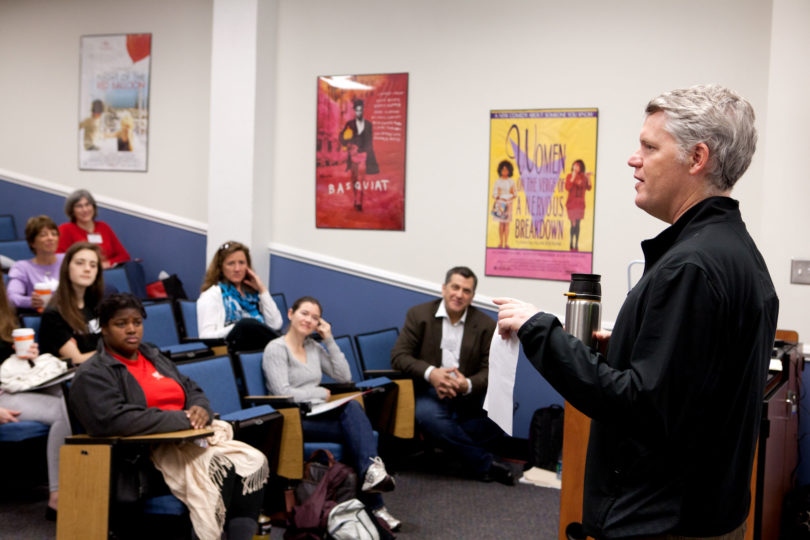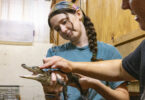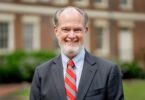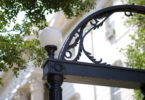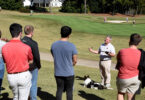The vast repository of expertise within research institutions like UGA can provide answers to some of the world’s most pressing problems.
But many researchers, who are experts in their fields, know very little about how directly to translate that knowledge for the world at large.
A team of UGA faculty and staff is beginning a new program to help researchers share their knowledge with a broader audience.
The Graduate School, the Office of the Vice President for Research, the Provost’s Office, the Office of Public Affairs, the Grady College of Journalism and Mass Communication and the theatre and film studies department in the Franklin College of Arts and Sciences are presenting a two-part workshop for faculty members. Its aim is to help them develop the skills necessary to better communicate their research to people outside the discipline; to policymakers; to media; to students and to general audiences.
“Often in academia, we fail to recognize who our various target audiences are, and we use complicated jargon that the average person can’t understand,” said Mickey Montevideo, public relations coordinator for the College of Engineering. “These workshops allow all levels of faculty and staff to examine and enhance their communications skills so that people from all walks of life can benefit from their research and knowledge.”
The techniques to be presented at the workshops are derived from lessons taught at the Center for Communicating Science at Stony Brook University, where experts combine improvisational theater games with guidelines and suggestions for working with the media. Representatives from Stony Brook came to UGA in December, presented their techniques to a small group of faculty and helped train UGA employees to run similar workshops.
“I thought it was fantastic,” said Susan Sanchez, a professor of infectious diseases in the College of Veterinary Medicine, who participated in the training. “We scientists have it in us to better express ourselves, and this workshop really helped me find that voice.”
In the first session on Feb. 27, researchers will learn how to work more effectively with members of the news media. In particular, they will hear a brief talk by an experienced journalist and public relations specialist who will explain what most reporters are after, and how researchers can better explain complicated subjects to nonexperts. Then, the group will split into smaller sections, where additional public relations specialists will discuss and apply some lessons learned in the first portion.
In the second part of the program on March 6, participants will learn how to speak more confidently and freely about their work by learning improvisational techniques from theater faculty and then applying those techniques in a simulated interview.
Department heads across campus will receive information via email explaining how to nominate faculty, and each head can nominate one faculty member from his or her department. Spaces are limited, but additional workshops are planned for the near future.


